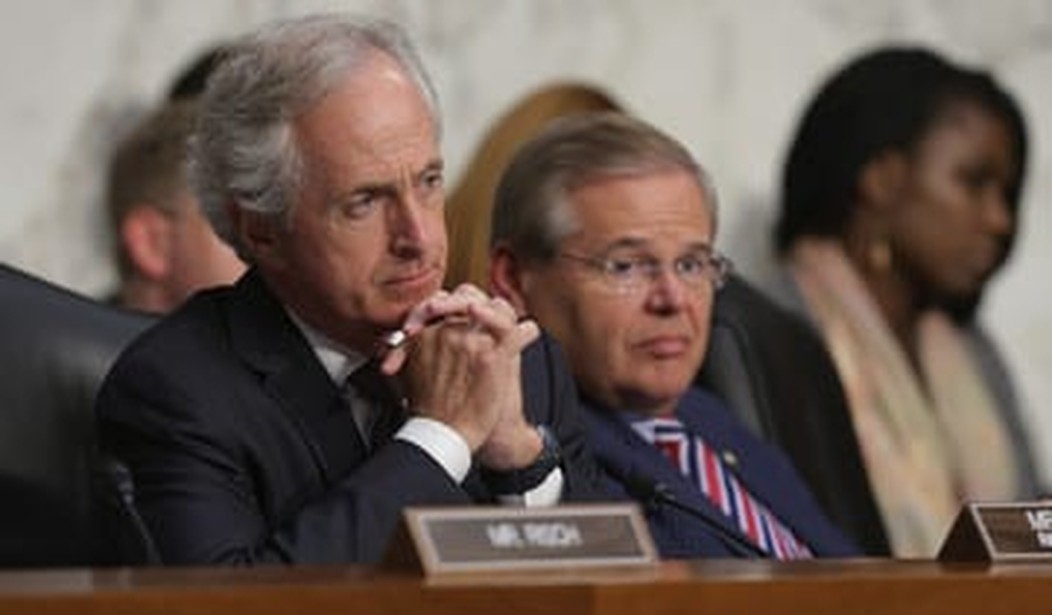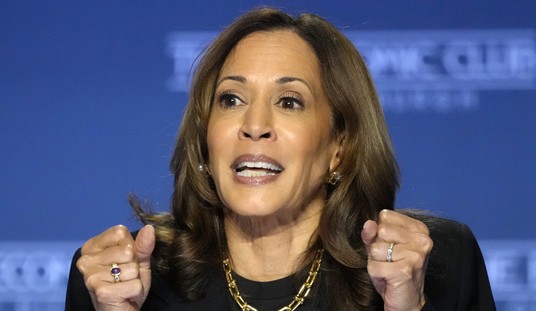WASHINGTON — Despite its intense lobbying efforts and even a new round of sanctions enforcement announced Thursday, the Obama administration’s deal with Iran appears headed not just for a sanctions bill but a congressional effort to exert some control over the endgame.
At a Senate Banking, Housing, and Urban Affairs Committee hearing Thursday morning, Senate Foreign Relations Committee Chairman Robert Menendez (D-N.J.) tersely reminded administration officials that past sanctions bill opposed by the White House have nonetheless passed overwhelmingly when brought to the floor.
“What I have seen is Iran deceive, delay and, over various administrations, march forward to the point where it seems that we are now ready to accept some form of an enrichment program in Iran. And so some of us are very skeptical not because of wide-eyed skepticism but of reality of what is the history so far,” Menendez said. “And I have to say part of my challenge in trying to listen to the administration is some of the same statements I’ve heard in the past.”
He dug up a Foreign Relations Committee transcript from 1991 in which the same arguments as today were brought against an Iran sanctions amendment: that it risked fracturing the international coalition that has been built up against the Islamic Republic and would amount to coercion.
“That amendment went on to pass 100-0,” Menendez concluded, leaning back in his chair and confidently eyeing witnesses Wendy Sherman, the Under Secretary of State for Political Affairs who led the negotiating team in Geneva, and Treasury Department Under Secretary for Terrorism and Financial Intelligence David Cohen.
“And it is one of the things that you all, the administration, heralds today as the essence of what has gotten Iran to the negotiating table,” the senator continued. “So you’ll forgive me if I having heard many of the same arguments — we will break our international coalition, we will not have partners — that has been the argument as of two years ago and it is the argument today. ”
Menendez continued that he’s still seeing two sides of the agreement: what the administration says it contains, and what the Iranians say. Secretary of State John Kerry admitted to the House Foreign Affairs Committee this week that, despite initial administration denials of Iran’s claims, the agreement does not say Iran doesn’t have a right to enrich uranium.
And it’s not just that. Iran is reporting that construction on the Arak heavy water reactor will continue, while the Obama administration says they’ve halted progress there.
Sherman told the panel that Iran is only allowed to do construction on Arak that doesn’t directly lead to functioning in a nuclear program capacity, such as building a road or a wall.
“You say a road or wall, the reality is if you continue to construct all the elements except for the nuclear core that is a fundamental difference and it is not insignificant — especially if our view is that Arak really isn’t to be allowed at the end of the day,” Menendez said. “Why would we allow them to move to even any form of construction, which puts a greater and greater investment on their part to achieve their ultimate goal?”
He noted that the Iranians are launching a rocket next week under the guise of being part of their space program, though “it’s well known that this is just a cover for military ballistic weapons program.”
“I think that is a provocative action in the midst of such negotiations, should be interpreted as a sign of bad faith, and only reaffirms in our mind why we need to proceed with some efforts here.”
Menendez then said that while he still wants sanctions as “an insurance policy,” he’s “beginning to think based upon all of this is maybe what the Senate needs to do is define the endgame.”
“And at least what it finds acceptable as the final status. Because I’m getting nervous about what I perceive will be acceptable to us as the final status … the administration versus what the Congress might find acceptable. And maybe defining that through a resolution may be a course of action that would affect the ultimate outcome here, which is obviously the most important one.”
Sen. Bob Corker (R-Tenn.), also a member of the Banking panel and Menendez’s GOP counterpart on the Foreign Relations Committee, said what has shocked lawmakers the most about the deal is its apparent nature as a “series of rolling agreements that go on and on.”
“When does the clock actually start?” he asked.
“Our experts are in Vienna this week working with the P5+1, the IAEA and Iran to determine that start date and make sure that the sequence happens in the order in which we all believe it should,” Sherman responded.
“So we’ve negotiated a six-month agreement a month ago but we don’t know when the actual start date is?” Corker asked in disbelief.
“It will happen in the next few weeks,” she said. “I don’t want to set a date today.”
Corker noted in the closed-door conversations at the White House, where President Obama and his aides tried whipping lawmakers to support the Iran deal and not anger Tehran with new sanctions, Senate Armed Services Committee Chairman Carl Levin (D-Mich.) suggested that the interim agreement needs a fixed end date.
“You can understand why folks on our side would be concerned,” Corker said.
“I do think that we are stepping away from base UN Security Council agreements and I think what Congress wants to see happen is that not occur and I think that’s why you’ve seen such reaction,” he said. “…And they’re not gonna violate this agreement — it’s an outstanding agreement for them, because in six months they’re gonna be a normal international entity.”
“I don’t see any way you hold the sanctions, but again we’ re obviously disappointed but hopeful that somehow you can put the genie back in the bottle and end up with some type of agreement that averts warfare. Because all of us do want to see this succeed… I don’t know how we get there with an interim deal framed the way this one is.”
The sanctions enforcement announced by the Treasury and State departments included the designation of companies and individuals for evading international sanctions against Iran and for providing support for Iran’s nuclear program.
“The Joint Plan of Action reached in Geneva does not, and will not, interfere with our continued efforts to expose and disrupt those supporting Iran’s nuclear program or seeking to evade our sanctions. These sanctions have isolated Iran from the international financial system, imposed enormous pressure on the Iranian economy, and motivated the Iranian leadership to make the first meaningful concessions on its nuclear program in over a decade,” said Cohen. “Today’s actions should be a stark reminder to businesses, banks and brokers everywhere that we will continue relentlessly to enforce our sanctions, even as we explore the possibility of a long-term, comprehensive resolution of our concerns with Iran’s nuclear program.”
Over at the White House, press secretary Jay Carney refused to predict what sanctions action might be coming from Congress.
“We continue to make very clear to Congress our view that now is not the time to vote on additional sanctions — to vote for additional sanctions, because doing so would threaten to divide the P5-plus-1 and to empower Iran’s hardliners,” he said. “…I will say that we are communicating that message as clearly as we can, and I think, importantly, making the point to those who are focused on this issue that this is not about whether you’re for or against sanctions. This administration has been more aggressively for sanctions than any of its predecessors and in a way that ensured we could create the kind of international consensus behind the view that Iran was the problem than has ever been seen.”
Two years ago, though, Menendez was ripping on the Obama administration in a Foreign Relations hearing for opposing sanctions.
“That says to me in the future that when you come to me, and ask me to engage in a good-faith effort, I have to — you should have said you want no amendment, not that you don’t care for that amendment,” he said in December 2011, tearing into the White House for saying it would work with him on a sanctions amendment.
“The clock is ticking. The published reports say we have about a year. Now when are we going to start our sanctions regime robustly? Six months before the clock has been achieved? Before they get a nuclear weapon?”









Join the conversation as a VIP Member